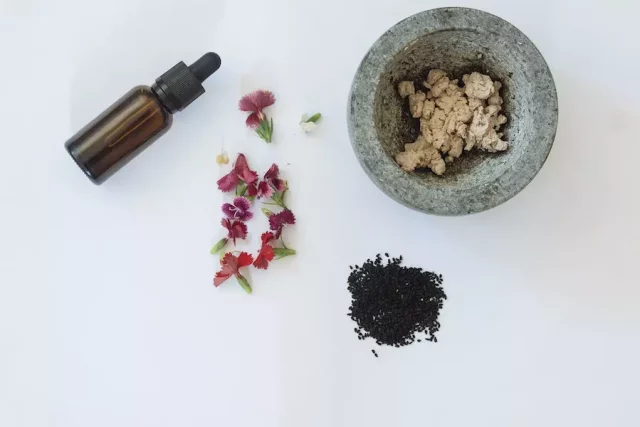Your skin is a barrier to protect you from all the harmful things you’re exposed to daily. Moreover, it’s the biggest organ of the body and is often neglected despite its essential role in the preservation of your well-being. Your skin reflects your health, and taking good care of it not only gives you the needed confidence but also slows down the effects of aging that come with time. So, in the text below, we’ll discuss some useful tips and ways to take care of this often underappreciated part of the body. Read on!
Protect Your Skin From The Sun
Yes, our Sun, the source of life, can lead to serious damage to the other skin barrier and even cause in some instances cancer and small tumors. Sun exposure is the leading cause of skin damage, including premature aging, dark spots, and skin cancer. So, it’s recommended to use a broad-spectrum sunscreen with an SPF of at least 30 every day, even on cloudy days. Wearing protective clothing such as hats, sunglasses, and long-sleeved shirts can also help reduce sun exposure.
And it is important to avoid prolonged exposure to the sun during peak hours, which are usually between 10 a.m. and 4 p.m. Believe us, with a bit of effort, you’ll do yourself a favor and lessen the effect of the Sun.
Exfoliate Your Skin
Exfoliating your skin is an important step in maintaining healthy, glowing skin. Exfoliation helps to remove dead skin cells from the surface of your skin, revealing smoother, brighter, and more youthful-looking skin. But, it is important to use a gentle exfoliator and not overdo it; like everything, excessive usage can become harmful at a certain point.
Now, we’ve already talked about the usage of chemicals, but don’t worry; these are generally safe for usage. Yet, for those who want to be extra cautious when it comes to their health, we strongly recommend a coffee scrub exfoliator, as the caffeine and other active ingredients can have beneficial effects on the skin, and they’re generally safe no matter how much you apply. So, scrub at least twice a week, and you’ll see a major difference in no time.
And don’t forget to follow up with a moisturizer to hydrate and protect your newly exfoliated skin. Simply incorporate it into your routine, as it’s not something you have to do on a daily basis, so it’s not burdensome and you won’t get tired of it easily.
Keep Your Skin Hydrated
Keeping your skin hydrated is an essential step in maintaining healthy skin. Dehydrated skin can appear dry, flaky, and dull and can also lead to premature aging. You can fix this by drinking a lot of fluids, from regular water to water enriched with electrolytes, which can help your overall health as well. And don’t forget to moisturize, as your skin needs daily hydration like your other organs, and just drinking fluids won’t do the trick. Moisturizing creams can have a significant impact on the overall appearance and health of your skin.
And, go for high-quality products that also have beneficial bacteria to regulate the skin’s pH and keep it young and fresh throughout the day. By any means possible, avoid products containing harmful chemicals and other ingredients that have proven to be cancerous after longtime exposure. By keeping your skin well-hydrated, you can maintain a healthy, youthful-looking appearance and prevent skin problems caused by dehydration.
Avoid Smoking
Without further ado, smoking not only harms your overall health but also damages your skin. Smoking can cause wrinkles, fine lines, and sagging skin, making you look older than your actual age. Smoking can also cause other health issues, and as explained, the inner and outer parts of the body are one and the same organism. So, what you drink, breathe, and eat shows after some time, and this applies to smoking as well. It’s a process, and it takes time, but you’ll see changes in your skin after the first two weeks, and it only gets better with time.
Eat A Healthy Diet
A healthy diet rich in vitamins, minerals, and antioxidants can benefit your skin. Foods such as fruits, vegetables, whole grains, and lean proteins can help nourish your skin from the inside out. Of course, avoiding processed and sugary foods can also help prevent skin problems such as acne. So, a healthy diet rich in beneficial fats, fiber, minerals, protein, and vitamins can rapidly improve this process and make it easier for all the other organs to respond quickly.
Due to the high content of harmful chemicals used to preserve processed foods, our body has a hard time coping, and it shows on the outer layers of our skin. Why? Well, if the kidneys and liver are already working full-time to digest and process all the ingredients, the skin is doing additional shifts to rid your body of all the toxins.
Get Enough Sleep
Lack of sleep can lead to various skin problems, such as dark circles, puffy eyes, and dull skin. How come? Well, the key word here is melatonin! It’s a hormone released mostly between midnight and 3 a.m. in the morning. Unfortunately, quite a lot of people stay up late and lack the proper amount of sleep, making it impossible for the body to have a chance at really recognizing the hormone. And, although you can do this for a short time, the prolonged effects of such practices will eventually show on your skin. So, get a good night’s sleep, and you’ll get rid of those dark circles and bags beneath the eye.
Cleanse Your Skin Regularly
Cleaning your skin regularly is essential for removing dirt, oil, and makeup that can clog your pores and cause acne. This goes hand in hand with the above-mentioned tip about staying hydrated and keeping your skin moist by using high-quality products. Cleaning your skin should be part of your daily routine, and after getting rid of all the dirt and makeup clogging your pores, it’s time to feed it with beneficial oils and creams. You’ll see a huge difference in no time!
Manage stress
Cortisol is a hormone that is released when you are stressed. The effects of this are still being studied and understood. But what we do understand is that stress can have a negative impact on your skin by causing acne, eczema, and other skin problems. It’s mostly related to a hormonal imbalance that happens within our body every time we face a certain degree of stress. Stress is a natural part of being human because it helps us stay alert when our lives are in danger. The hormone cortisol helps us stay awake and improves cognitive functions throughout the day.
But, artificially induced stress (the one we face mostly due to work, private issues, and school) is different from the one we experience in times of real threat and danger. So, it is essential to manage stress through practices such as yoga, meditation, or deep breathing exercises. Finding ways to relax and de-stress can help improve your skin’s appearance and overall health.
In short, taking care of your skin requires a holistic approach that includes protecting it from the sun, keeping it hydrated, eating a healthy diet, getting enough sleep, cleansing and exfoliating regularly, and managing stress. Hopefully, these tips will actually make a difference, and you’ll be happy with the results in no time!













